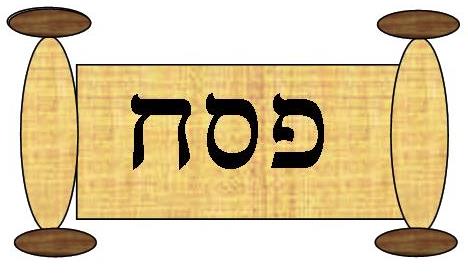The concept of Sefirat ha’Omer is generally described in terms of a bridge that connects the physical freedom from Egypt with our spiritual freedom (‘there is no free man other than the one who studies Torah’). Based on the verse in Emor (23:15), which opens the Parshah of Sefirat ha’Omer with the words “And you shall count for yourselves the day after the Sabbath”, our Tzedokim always began counting the Omer on a Sunday. The Chachamim had a difficult time eliminating this fallacy, and on the day that they finally proved the Tzedokim wrong, they declared an annual celebration. One of the
arguments that won the day was the fact that, if, “the day after Shabbos” is to be taken literally as the Tzedokim explained, then the Torah would not be giving any indication as to which Sunday of the year (or even of the Pesach season) the
counting was to begin. Consequently, they concluded, bearing in mind that the Torah sometimes refers to Yom-Tov as ‘Shabbaton’, “the day after Shabbat” must be referring to the day after Yom-Tov (i.e. the day after the first day of Pesach, which is what the Torah is talking about at that point). The question arises however, that if the Torah is really referring to Yom-Tov, why does it call it “Shabbat”, and not ‘Yom-Tov’, or ‘Mo’ed’?
The B’nei Yisoschor explains: To answer this question, we first need to understand the basic difference between Shabbat and Yom-Tov. We need to understand that whereas the essence of Shabbat is what is known as ‘it’arusa di’le’Eila’ (an arousing that descends from above), the essence of Yom-Tov is ‘it’arusa di’letata’ (one that ascends from below). The
sanctity of Shabbat was declared at the Creation, from which time on, every seventh day has been holy. This means that the institution of Shabbat was fixed by Hashem at its inception, and man has no authority to change it. Yom-Tov on the other hand, is determined by Rosh Chodesh, which in turn, is fixed by a Beit-din. And this basic distinction reflects the twin concepts of ‘it’arusa di’le’Eila’ and ‘it’arusa di’letata’ that distinguish between the two. In other words, whereas Yom-Tov was an expression of Israel’s development, a hallmark of achievement in its early nationhood, resulting in a sanctity that was sparked off by Israel, the sanctity of Shabbat was a gift from Hashem, unrelated to their deeds or their level. Indeed, Chazal, in describing God’s donation of the Shabbat to Israel, write ‘I have a wonderful gift in My treasury … ‘Israel received Shabbat, but created Yom-Tov. ( The exception to this rule is Pesach, which Hashem granted us despite our unworthiness, as Rashi writes in Parshas Bo (12:6) – ‘The time arrived to fulfill the oath that I swore to Abraham to redeem his children. But they had no mitzvot with which to busy themselves…. So He gave them two mitzvot … ‘It was Hashem who offered us the opportunity to earn the redemption, rather than we who made the initial effort to deserve it.
What is the purpose of the Mitzva of Sefirat Haomer? Rabbi Joel Grossman comments that the Sefer Hachinuch writes (Mitzva 306) that the Torah is the root of the Jewish people and it is because of the Torah that Hashem created the heaven and earth. The reason Hashem took us out of Egypt was in order for us to accept the Torah at Mount Sinai and fulfill the Torah. Therefore just as we count to any great day in our lives, so too, we count to the receiving of the Torah – Kabbalat Hatorah. The Sefer Hachinuch asks why do we count how many days have passed instead of how many days remain? He answers that by saying that there are still forty-nine days left until Kabbalat Hatorah will show that there is still a long time left before Kabbalat Hatorah and we do not want to do that. He asks, “After the midway point why don’t we switch to how many days are left until Kabbalat Hatorah?” He answers, “When the Chachamim made a format for blessings they do not change it midstream.” Rav Moshe Feinstein notes an interesting observation about the upcoming holiday of Shavuot. He asks, “Why by every other holiday does the Torah give the exact month and day?” He answers, “If the Torah gave an exact date people might think that we only have to accept the Torah on that date. Since the Torah does not record a date we realize that we must strive to accept the Torah anew every day of the year.”
Prepared by Devorah Abenhaim







